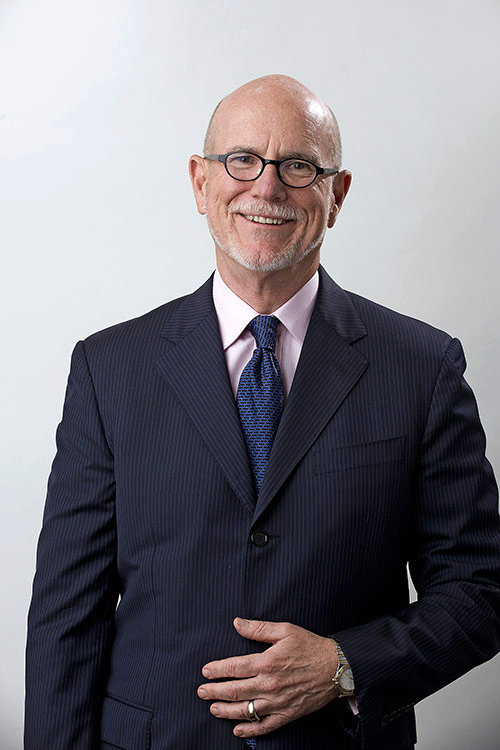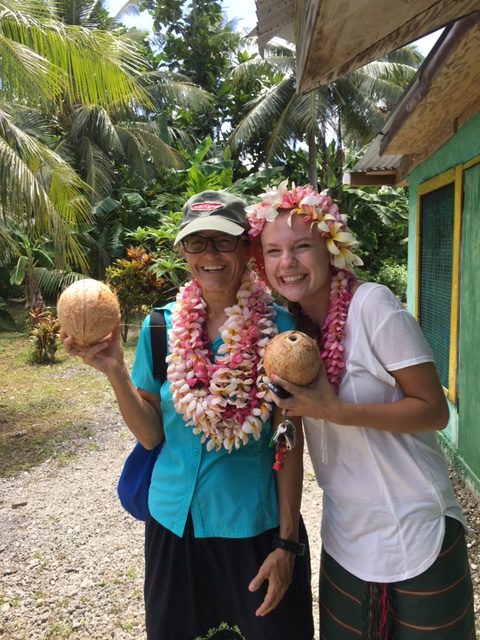
Name: John Cash
UChicago Degrees: M.A. and Ph.D. in British History
Current Position: Senior Consultant and Principal, Chair of the Board of Directors, Marts & Lundy
Tell us about your work. What is your current position? What do you do on a daily basis?
For sixteen years (2001-2017), I have been a Senior Consultant at Marts & Lundy, the nation’s premier fundraising consulting firm. For the past five years, I have served as the elected Chair of the Board of Directors of the firm. My consulting practice has largely supported fundraising programs and campaigns at major research universities with particular attention to public or state-supported universities that have less experience in development and weaker alumni relations programs. I have also worked with major museums, health care organizations, environmental groups, and other arts organizations on their advancement programs.
Like the rest of my firm, I am a strategic consultant. I advise on organization, method, budget, and case development. I train volunteers and staff and work with executive leadership on gift strategy. I develop multi-year campaign plans and have conducted strategic planning exercises for everything from alumni relations to academic priority setting. As a consultant, I do not raise money for my clients or solicit gifts.
Our firm is 92 years old and consists of 62 employees. Most of us are senior professionals who work out of home offices though we have a business office in New Jersey. I live in California. We are principally located in the United States but have offices in Canada, London, and Australia. My practice is international and I have clients in the UK and Australia as well as across the U.S.
How did you make the transition from doctoral study to your current field?
When I returned from my research year in London and began writing my dissertation, the market for new Ph.D.’s in history was very poor. I attended the AHA meetings and found the opportunities to be extremely limited; there was a surplus of new doctoral students. The convention was a wake-up call. I seriously began to look at what could be alternative careers while I tried to secure an academic position commensurate with my UC degree.
At the time, I needed a part-time job to help support my dissertation work and I was hired as a researcher for the development (fundraising) office at the Illinois Institute of Technology. IIT was an ambitious place at the time and was engaged in a major campaign even though they had little experience at raising large gifts. It was my job to research individual prospects, which came naturally to me from my academic background.
After six months of research work, an opportunity opened to write grant proposals and to work raising funds for IIT from private foundations. This was a full-time job. At this point, the future for an academic career looked pretty bleak and I felt that I needed to learn other skills in order to protect myself professionally for the long term. My dissertation was about half completed. I knew that I wrote well and grant writing came naturally to me. I took the job and effectively “stopped out” of the Ph.D. program in order to work full time.
This was a period where it was impossible to get teaching experience at the University of Chicago. All graduate students had to find teaching opportunities elsewhere and my position at IIT allowed me to do some teaching part-time at the Chicago/Kent College of Law. This ended up being the only teaching experience I was able to obtain before receiving my doctorate.
My job in foundation relations at IIT lasted for 18 months and I learned a huge amount about fundraising from private foundations but also how a professional development organization works. I decided that being another ABD was not my future and that completing my dissertation and receiving my doctoral degree was critical to my career plans. I also decided that if I was going to leave academia, I wanted to live back in California, which was my home, and I wanted to represent organizations I believed in.
I quit my job, lived off my partner (now husband) for nine months while I finished my dissertation. I defended successfully and got my degree. Because of the Ph.D. and because of my fundraising experience at IIT, I was hired – in all honesty above my skill set — to run the development program at a small liberal arts college for women in Oakland, California, Mills College.
I spent six years at Mills and learned a great deal about development and about fundraising generally. The president of Mills took pride in introducing me as a new Ph.D. from the University of Chicago. I did no teaching during this period.
Subsequently, I was hired to be the chief development officer in the School of Humanities and Sciences at Stanford with the title of Associate Dean. My doctorate was extremely important to securing this job as the faculty wanted someone who understood the academic mission but who also had a proven track record of raising private support.
Stanford was a terrific job for me. I worked closely with the dean and saw the challenges that faculty in Stanford’s largest school felt in competing for private funds against the graduates of professional schools. It was a perfect use of the skills I had learned as a development professional over the prior eight years and the academic background drilled into me at the U of C.
From Stanford, I was hired at Berkeley as Associate Vice Chancellor for University Relations and the leader of a $1.5 billion campaign. Berkeley was my undergraduate alma mater and I was passionate about the case for support and the need to preserve excellence at the nation’s premier public university.
In this job, I came to manage more than 200 people as well as a large volunteer organization. I also taught freshman seminars in the history department on the “revolutionary experience.” I maintained close relations with the senior faculty in history and did my best to secure funding for their programs.
After eight years and at the end of the campaign, I was approached for a number of positions both within universities and as a consultant. It was important for my home life to stay in the San Francisco Bay Area and consulting seemed to be the most interesting opportunity. I agreed to join Marts & Lundy and the Ph.D. has proved to be very important in securing and in serving major clients over the years.
What advice do you have for current Ph.D. students?
Strategic consulting on development has been my work for more than sixteen years and it has been a wonderful career. I have always tried to remain engaged with my academic field but I would be less than honest if I said it had not slipped away from me. When faced with the alternative of leaving the academy and following another path, albeit within the university setting, I made my decision and I have never looked back.
I want to emphasize, however, that the doctorate has been essential in my rise in my chosen profession. It has helped me to understand and to communicate with faculty around development and it has provided me with immense credibility given the stature of the University of Chicago.
I also feel that being able to take the time to do the research and to be so focused on a subject of great intellectual interest for was a gift beyond measure. Who gets such an opportunity in life? The fact that I was able to parlay my academic experience to an exceptional professional career in an unrelated profession is less important to me personally than having the experience and the achievement of obtaining a University of Chicago Ph.D. My dissertation sits prominently in my library.
If there is one lesson I hold up it is to pursue one’s intellectual interests and to let the career develop as it will in often unexpected ways. Enjoy the privilege of this time of research. But keep your eyes on the options ahead. Good luck.




